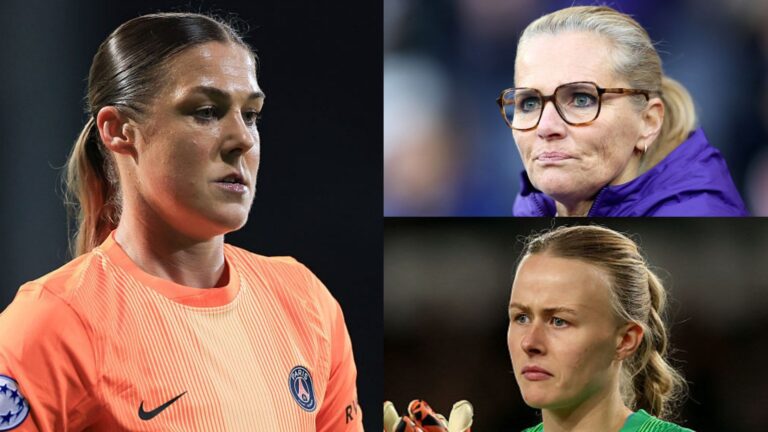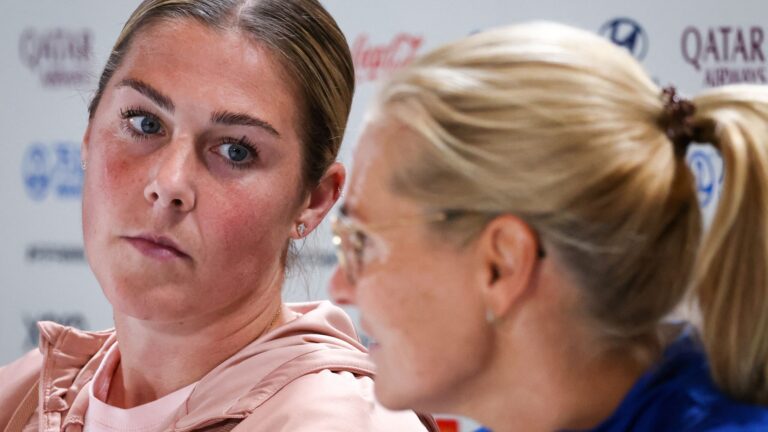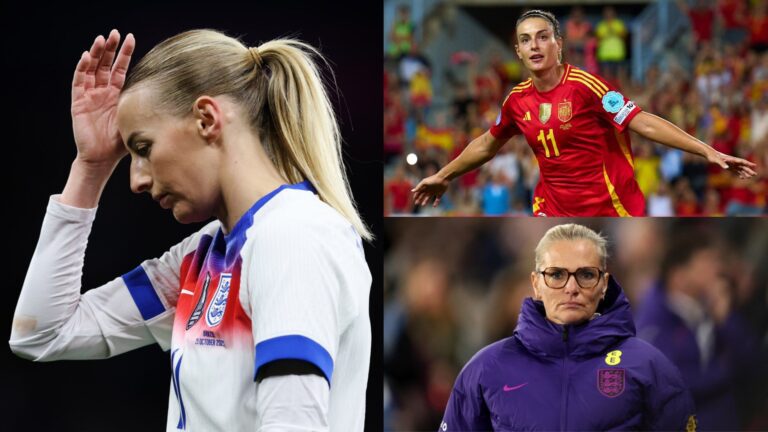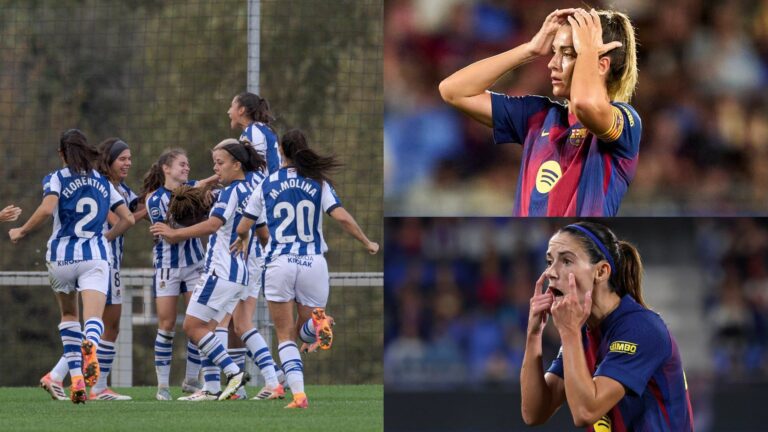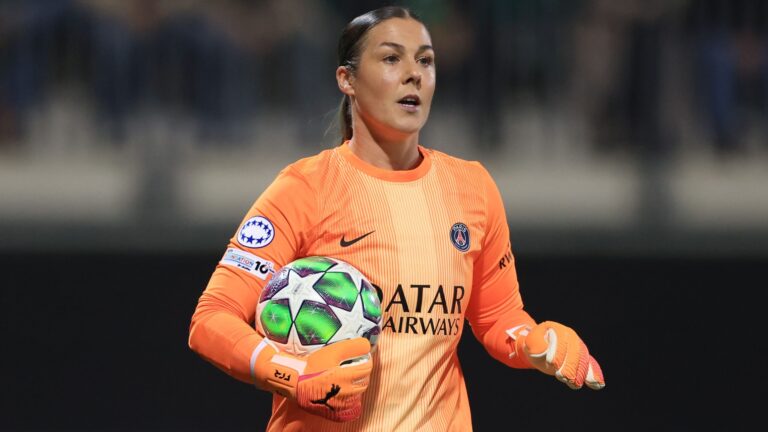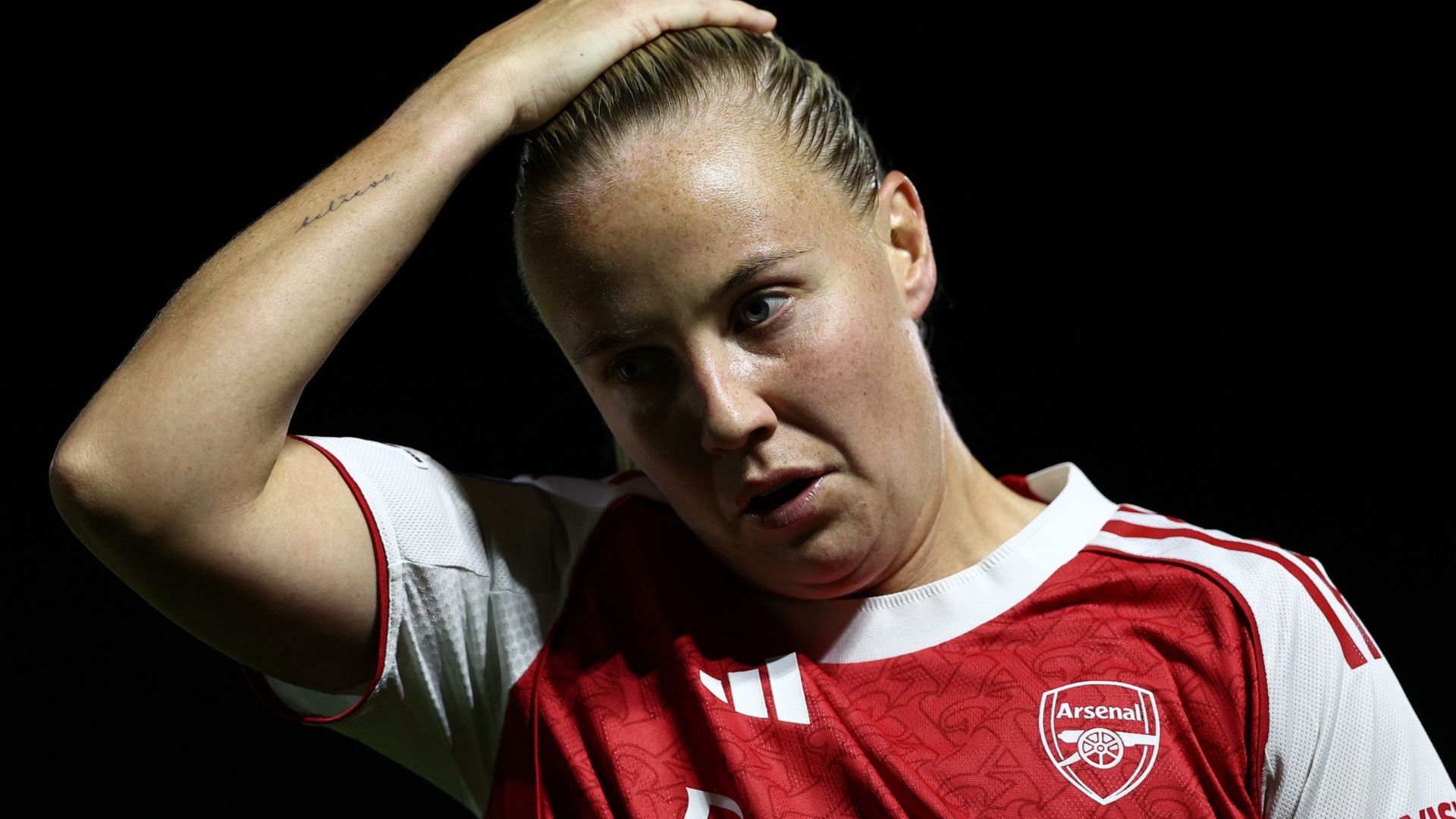
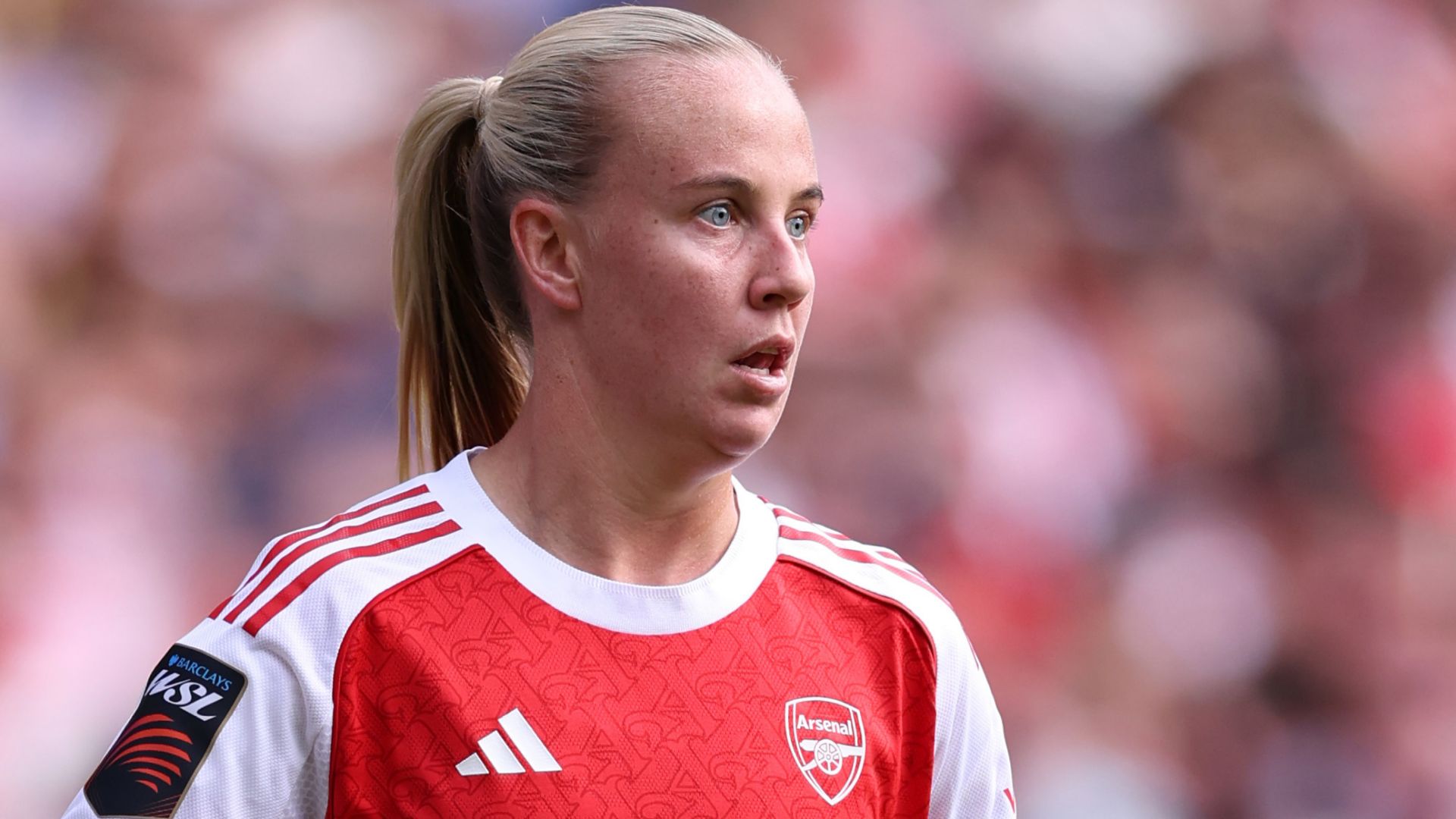
Beth Mead Questions Women’s Champions League Revamp Amid Arsenal’s Title Defense
In a fresh take on the evolving world of women’s football, Beth Mead and Arsenal‘s pursuit of another European crown highlight the debates surrounding the Women’s Champions League changes. The English forward, celebrated for her pivotal role in England’s successes, shares her honest views on the new setup, while the team navigates a transformed path to glory this season.
Exploring the Shift in Women’s Champions League Structure
Last season, Arsenal enjoyed a triumphant campaign in 2024-25, but this year brings a revamped approach to claiming the top prize. Under the new league phase, every squad will tackle six matches-split evenly between home and away-with the leading four sides earning direct entry into the quarter-finals. Teams placed from fifth to 12th will compete in a play-off stage, whereas those ending 13th or below will bow out entirely.
This overhaul, inspired by the ‘Swiss Model’ seen in men’s European tournaments, hasn’t won over everyone. Specifically, Beth Mead, the Arsenal attacker who has been instrumental in England’s consecutive European Championship victories, doubts whether these adjustments truly enhance the Women’s Champions League.
Mead’s Post-Match Reflections on the Format
Following her goal in Arsenal’s commanding 2-0 win against Benfica, Beth Mead spoke to Disney+ about her reservations: “I’m not entirely enthusiastic about it; I prefer the traditional group and knockout styles. That’s the essence of the sport, yet we’ve got to adapt to the current rules and make the most of them.”
In that game in Portugal, Mead netted the opener, and her fellow England player Alessia Russo sealed the deal with a late strike in the 89th minute. Reflecting on the intensity, she noted: “It was a demanding match, as we anticipated, with Benfica bringing a lot of physicality and trying to disrupt us. We’re all about skillful play, so we focused on staying composed. In the end, securing the win and the goals made it worthwhile.”
Arsenal’s European Legacy and Rising Stakes
The Gunners hold fond recollections of playing in Lisbon, where they clinched a remarkable Champions League final win against Barcelona earlier this year. Now, as defending champions, they’re under scrutiny from competitors across the continent eager to unseat them.
Addressing this pressure, Mead commented: “Winning the title means everyone’s gunning for you. We’ve ramped up our efforts again after a variable Champions League run last time. We’re excited for what’s ahead and know we must elevate our performance beyond last season’s level.”
Looking Back and Planning Forward During the Break
After a defeat to Lyon in their first European outing of 2025-26, Arsenal is now in an international break. Head coach Renee Slegers is using this time for thorough evaluation and strategy development.
In her comments to the team’s official site, Slegers explained: “This break serves as a key opportunity for our coaching team to reflect. The initial week will cover reviews of pre-season and the opening games, followed by preparations for the upcoming fixtures. It’s an ideal time for growth and re-energizing.”
“We’re gaining valuable insights, and the break builds momentum for the next phase. Many players are off to international duty, while others stay back, but I’m eager for what’s next,” she added.
Upcoming Challenges for Arsenal in Domestic and European Arenas
Currently positioned fifth in the WSL standings, Arsenal won’t see action until their away game against Leicester on November 2. This leads into a series of tough encounters that Slegers must prepare her players for meticulously.
The schedule includes hosting Chelsea next, traveling to face Bayern Munich in the Champions League, then clashing with Tottenham in a heated local rivalry. They’ll return to European play by welcoming Real Madrid, followed by a home match against Liverpool.
Beth Mead’s Criticism of the New Women’s Champions League Format
In the world of women’s football, Beth Mead has become a prominent voice, especially as an Arsenal star and England international. Recently, Mead openly criticized the new format of the Women’s Champions League, arguing that it could undermine the competition’s integrity while Arsenal gears up for another European title defense. This debate highlights ongoing discussions about how changes in tournament structures impact teams like Arsenal and the broader landscape of women’s sports.
The Women’s Champions League has always been a stage for top talent, with keywords like “Beth Mead” and “Arsenal women’s team” frequently searched by fans eager for updates on their favorite players and matches. Mead’s comments stem from concerns that the new format, which introduces a league phase with more teams and potentially uneven scheduling, might favor larger clubs and reduce opportunities for underdogs. For instance, she pointed out how this could lead to fixture congestion, affecting player welfare and performance in key games.
Understanding the New Format Changes
The revamped Women’s Champions League format aims to expand the competition by including more teams from various leagues, creating a more inclusive field. Under this setup, teams now participate in a initial league stage before advancing to knockouts, which is designed to build excitement and give more clubs a shot at glory. However, Beth Mead and other critics argue that this shift could dilute the competition’s elite status. In her statements, Mead emphasized how the added matches might lead to fatigue for players already juggling domestic leagues and international duties, potentially impacting Arsenal’s chances in defending their European title.
From a fan’s perspective, this change could make the tournament more accessible, with more high-stakes games to watch. Keywords such as “Women’s Champions League new format” are buzzing online as supporters debate whether this evolution will truly enhance the experience or create more challenges. Arsenal, under managers who prioritize tactical depth, will need to adapt quickly to maintain their edge, especially with stars like Mead leading the charge.
Arsenal’s Strategy for European Title Defense
As Arsenal pursues another Women’s Champions League title, their approach involves leveraging key players like Beth Mead, whose speed and precision have been crucial in past victories. The team’s strategy focuses on building squad depth to handle the demands of the new format, including rotating players to avoid burnout. Fans searching for “Arsenal European title defense” will find that the Gunners are emphasizing youth development and tactical flexibility, drawing from successful campaigns in previous seasons.
One notable aspect is how Arsenal’s coaching staff is using data analytics to optimize training and recovery, ensuring players like Mead remain at peak performance. This proactive stance directly counters the issues Mead raised, showing how clubs can turn potential drawbacks into opportunities for growth.
Benefits of the New Women’s Champions League Format
While Beth Mead’s criticism is valid, the new format does offer several benefits that could elevate women’s football overall. For starters, it provides greater exposure for emerging talents and smaller leagues, potentially increasing global viewership and sponsorship deals. This inclusivity might inspire more young athletes to pursue professional careers, as the competition now features more matches broadcast worldwide.
In practical terms, the expanded format allows for deeper rivalries and unexpected storylines, making it more engaging for fans. Benefits include enhanced revenue opportunities for clubs through additional merchandise and ticketing, which can fund better facilities and player support systems. For teams like Arsenal, this could translate to stronger financial backing for their title defense efforts.
Practical Tips for Fans Following the League
If you’re a fan keen on keeping up with the Women’s Champions League amid Beth Mead’s ongoing criticism and Arsenal’s campaign, here are some practical tips to enhance your experience:
- Stay Updated with Schedules: Use apps or official UEFA websites to track match times, avoiding conflicts with domestic games. Set reminders for key fixtures involving Arsenal to catch every moment of their title pursuit.
- Engage with Communities: Join online forums or social media groups focused on keywords like “Beth Mead Arsenal” to discuss the new format’s pros and cons. This can provide fresh insights and build connections with fellow enthusiasts.
- Watch Strategically: Opt for streaming services that offer comprehensive coverage, allowing you to analyze tactics without missing out. Focus on player stats to appreciate how changes affect stars like Mead.
- Support Player Welfare: Advocate for balanced schedules by sharing informed opinions online, helping to amplify voices like Mead’s and push for positive reforms.
These tips not only help you follow the action but also make you a more informed supporter, contributing to the growth of women’s football.
Case Studies from Previous Seasons
Looking back at past Women’s Champions League seasons offers valuable lessons on format changes and their impacts. For example, in the 2023-2024 season, teams like Barcelona adapted well to similar structural tweaks, winning the title through strategic squad rotation-much like what Arsenal might need now. Beth Mead has referenced how Arsenal’s own 2022-2023 run demonstrated the risks of over-scheduling, with key players facing injuries that nearly derailed their campaign.
In contrast, clubs like Lyon have historically thrived in evolving formats by investing in sports science, providing a case study for Arsenal. These examples underscore Mead’s points, showing that while innovation can bring excitement, it requires careful management to avoid pitfalls.
First-Hand Experiences from Players
Drawing from interviews and player insights, first-hand experiences paint a vivid picture of the challenges posed by the new format. Beth Mead herself shared in a recent podcast how the increased travel and game load affected her during England’s Euro campaigns, emphasizing the need for better rest periods. Other players, like Arsenal teammates, have echoed these sentiments, noting how such changes can impact mental health and family time.
One player from a rival team mentioned the positives, such as more opportunities to showcase skills on a bigger stage, but highlighted the importance of union advocacy for fairer schedules. These personal stories add depth to the debate, reminding fans that behind the keywords and headlines are real athletes navigating these shifts.
Key Takeaways for Women’s Football Enthusiasts
To wrap up the core content without a formal conclusion, remember that discussions around Beth Mead’s criticism and Arsenal’s title defense are shaping the future of the Women’s Champions League. By staying engaged and informed, you can appreciate the nuances of this evolving competition, ensuring your support contributes to its success. (Word count: 852)



